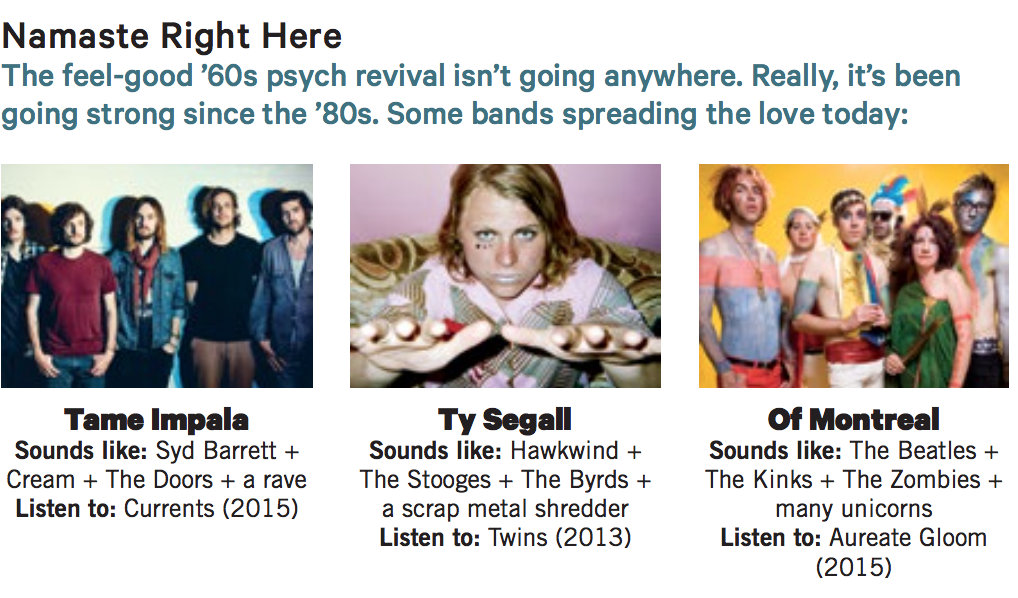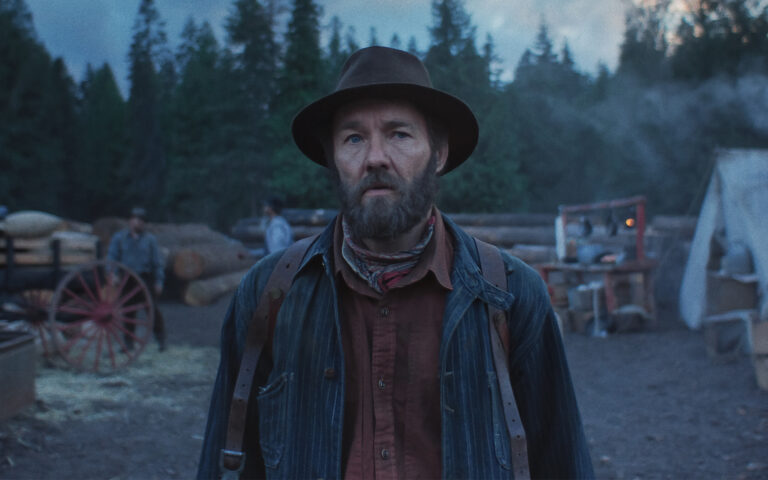There’s an episode in the latest season of Girls (don’t act like you’ve never watched it) where Marni arranges a laughably fauxhemian, Laurel Canyon-inspired wedding, all Coachella floral crowns and group meditations. “This is part of a very specific vision that I had for this wedding,” she says, “a vision from an Edward Sharpe video, and it’s mine!”
That’s essentially how music writers view Edward Sharpe and the Magnetic Zeros: inauthentic hippie shit. It doesn’t help that Edward isn’t real — he’s the messianic alter ego of Alex Ebert, frontman of the 10-person psych-folk troupe. While the act’s highly contagious, Aquarian Age sound has made them festival and satellite radio favourites, Ebert routinely gets knocked for his smiling, robe-wearing, beard-dAleonning aesthetic. He’s not an actual guru!
Except, that’s the point: Edward Sharpe, the character, is a satirical take on the rock star myth. “The whole messianic thing was a story I wrote flippantly for our first press release,” says Ebert. “Everyone ended up taking it far more seriously than I expected. I guess if you have a beard and you’re white and a frontman, you’re playing into something.” So, to end the rampant conclusion jumping, Ebert’s killing Edward. On the cover art for PersonA, the band’s fourth LP, the fictional singer is boldly crossed out of the band name. To drive the metaphor home, the Olivia Wilde-directed video for lead single “No Love Like Yours” sees Ebert attend his own funeral. The memo: Ebert’s being reborn…as himself — who he’s been trying to be all along.
The great irony of Ebert’s career is that he was accused of phoniness the minute he strove for honest-to-god authenticity. In the early aughts, he struggled with alcoholism (and a tragically asymmetrical haircut) while fronting LA electro-punks Ima Robot. “I’d become a robot in so many ways, obedient to fear-based institutions like relationships and AA and major label process and success.”
He decided to abandon it all: his band, his girlfriend, his 12-step program, even his cellphone. He moved off the grid, studied with Indian mystic Osho, and began penning joyous, sing-songy folk numbers harkening back to his childhood, when Americana was a bit more earnest. He assembled a band and, yes, an imaginary frontman, symbolizing his transformation, to go with it. He regrets that last part.
While we can argue many great artists adopt stage personas (hell, Bowie had about 12), Ebert actually aims for the opposite. “There’s this perception that you’re wearing a mask when you’re onstage, and offstage you’re your regular self. I think it’s the reverse: the more unhinged performers are from self-censorship and social anxiety, the more in the zone they are.”
He’d know: PersonA finds the Magnetic Zeros deep in a serious groove, leaving their superegos at the door. Their first record written collectively (and without long-time singer Jade Castrinos), it’s their most freewheeling yet, flowing between sunny handclap ballads (“Free Stuff ”) and wistful, sprawling folk-rock epics (“Hot Coals”). Lyrically, Ebert is tremendously candid, writing about fatherhood, love, and life. It’s big, open-hearted stuff. The Truth. And, at a time when irony and cynicism course through pop music like countermelodies, it’s something we definitely can handle.




